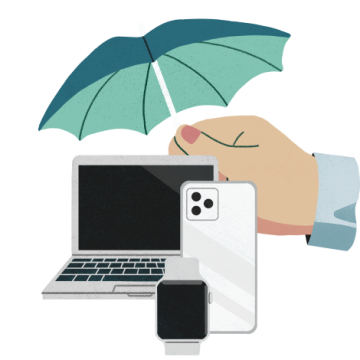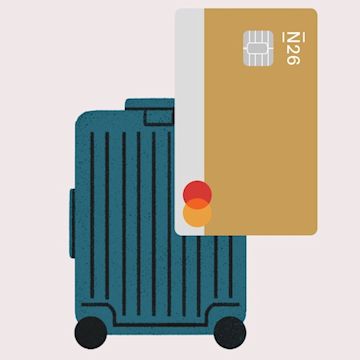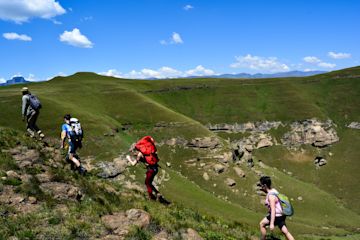
How to travel on a budget
Traveling on a budget doesn't mean sacrificing quality—it just means getting more creative! Here are the best ways to make your money stretch further on your next vacation.
8 min read
- Budget-friendly travel doesn’t have to mean forgoing quality — you might just need to plan ahead.
- Make thoughtful choices about your vacation destination, non-negotiables, and can-do-withouts. This can help you have the holiday you want at a price you can afford.
- From flying mid-week to avoiding sneaky ATM fees, get tips for how to keep your holiday within budget.
Traveling on a budget doesn’t mean sacrificing comfort or quality—but it does mean getting more creative with your money. If you want to travel but you don’t have a lot of spare cash, here are some of the best ways to make your vacation money travel further!
Choose your destination carefully
- Instead of starting with a destination in mind, start by comparing different flight or travel prices for a variety of locations. Narrow down the list according to the best deals available.
- Next, consider seasonality. If a destination is currently “off-peak,” that usually means accommodation will be cheaper as fewer tourists are likely to visit. But, bear in mind that different countries have different peak tourist seasons. Be sure to do your research!
- Check out the cost of living for each country. This can often vary wildly between different destinations and greatly impact what you’ll be able to do, i.e. how often you can eat out and how far you can travel once you’re there.
- Then, you may need to balance the cost of a more expensive, long-haul travel ticket next to a reduced cost of living. Sometimes, it can work out cheaper to pay more for up-front travel costs if it means spending less overall on living expenses.
Save money before your trip
Get to grips with your expenditures
Protect what you love
Get peace of mind for your smartphone with N26 Metal.
Explore insurances at N26 Metal
Choose a budget that works for you
Create a vacation budget—and stick to it!
Secure your accommodation ahead of time
- Hotels: While often more expensive than other types of accommodation, hotels can come with some cost-saving advantages. If you find a hotel that offers breakfast, access to utilities, and discounts on local tourist attractions, you may end up saving money in the long run.
- Airbnbs: When booking an Airbnb, keep an eye on the service and cleaning fees. These are usually one-off expenditures so it often works out cheaper if you’re planning a longer rather than a short stay. Additionally, you can often make sizable savings if you split accommodation costs between more people. This can also allow you to stay in some larger, fancier places!
- Hostels: No longer the mainstay of students, you can find fantastic deals on private rooms, some with ensuite bathrooms, in many hostels around the world. Additionally, while you’re there, you may also meet other guests willing to share transportation and day trip costs with you!
Pay with a card that has no travel fees
The best way to withdraw money abroad
Be smart with what you spend on
Tips for smart, budget-friendly travel
- Monitor your spending: Start with a budget, but don’t stop there. Keep tabs on your expenses as you travel and make sure your carefully made financial plans don’t fly out the window. Budgeting apps can help you stay on top of things.
- Choose off-peak times: If your schedule is flexible, travel during shoulder seasons or weekdays. Airfare and accommodations are often less expensive outside of peak times.
- Look out for hidden costs: Factor in additional expenses like travel insurance, visa fees, and baggage charges. And before you travel, research any other expenses you might run into, such as tipping or highway tolls.
- Skip the ticket line: You don’t need to splurge on entrance fees or expensive attractions. Instead, visit parks, museums on free-entry days, and local cultural events. Self-guided walking tours can help you get acquainted with the area’s history and culture — look online or at the local tourist information office for suggestions.
- Pack light: Avoid hefty airline baggage fees by packing light. Try bringing a capsule wardrobe, downsizing your toiletries, and keeping your souvenir shopping to a minimum.
- Learn some local lingo: Not only is it fun to pick up some basic phrases in the local language, but it also shows respect and could even help you negotiate better prices and steer clear of tourist traps.
Save up with Spaces
Use N26 Spaces sub-accounts to easily organize your money and save up for your goals.
Discover sub-accounts
Explore the world with N26
With N26, the world is your oyster — and you’re in the driver’s seat when it comes to your finances. The N26 You travel card lets you enjoy your vacations, with an account that makes managing your money easy wherever you go.
Whether you’re traveling for pleasure, work, or studies, N26 is designed for modern travelers. Not only do you benefit from the best rates on international transfers, you’ll also get free card payments worldwide. And in addition to saving with your travel card, it comes with travel insurance, so you can have complete peace of mind even when you’re far from home.
N26 makes it easier to manage your finances while you’re traveling — discover how.
FAQs
- Make a travel budget.
- Cut back on unnecessary expenses.
- Put money aside in a savings account.
- Set some savings goals.
- Earn extra income.
- Airplane tickets
- Accommodation
- Local transportation
- Trips and activities
- Food and drink
It’s cheaper to fly during the week, especially on Mondays, Tuesdays, and Wednesdays and during the low season.
The cheapest days to fly are Mondays, Tuesdays, and Wednesdays.
To save money while traveling, stay in hostels or guest houses, use public transport, walk or travel by bicycle, take advantage of any free activities and attractions, and buy food in the supermarket or go to local restaurants.
If you want to save money for your next trip, you can try some of these tips:
When budgeting for your next trip, take the following expenses into account:
First, check on the conditions of your bank card. Ideally, you want to use a card that has good exchange rates and no foreign transaction fees. Tell your bank that you’ll be traveling so that they don’t mistakenly flag your foreign transactions as suspicious. Mobile banking apps can help you monitor your spending and stay secure while you’re abroad. It’s smart to have both cash and cards on hand, but only carry as much cash as you need. And in general, do some research in advance about ATMs and exchange rates — a little knowledge can save you a lot of money!
Instead of paying for taxis, use public transport like busses and trains — many local transport networks offer passes that include unlimited rides during a set time period. If you do need to hop in a car, you can use carpooling platforms to share rides and lower your costs. And for shorter distances, try renting a bike or getting there the old-fashioned way — walking is a great way to soak up your surroundings.
Stay in hostels or guesthouses or use home-sharing platforms like Airbnb, which are often cheaper than hotels. If you’re up for some house-sitting or volunteering, there are platforms where you can find free accommodation in exchange for working on a farm or taking care of pets. Campgrounds or eco-lodges are another affordable option, especially during the warmer months.
Find similar stories
BY N26Love your bank
Related Post
These might also interest youTRAVELWhy winter is the best season for budget travelFrom cheaper flights to luxury bargains, here’s why winter is the ultimate time to travel without breaking the bank.
4 min read
TRAVELTravel Expenses - Your guide to track them for a worry-free vacationTrack your expenses like a pro to avoid those post-vacation blues.
4 min read
TRAVELHow to travel with friends without any financial stressPlanning a group trip? Here's how to handle shared holiday expenses to keep everyone happy.
5 min read



